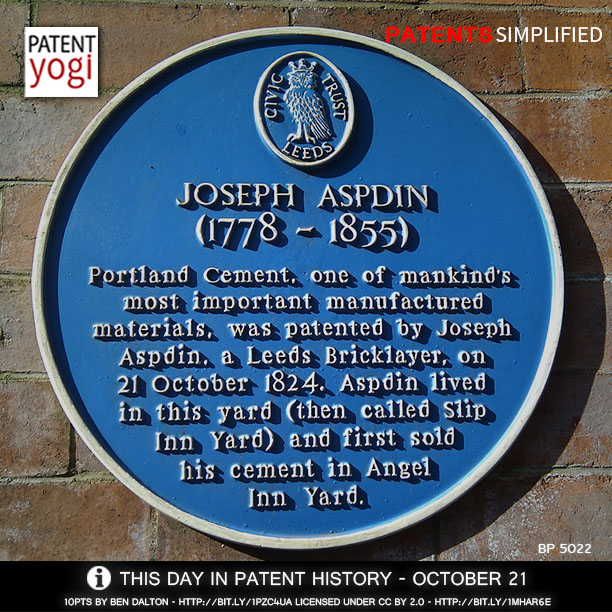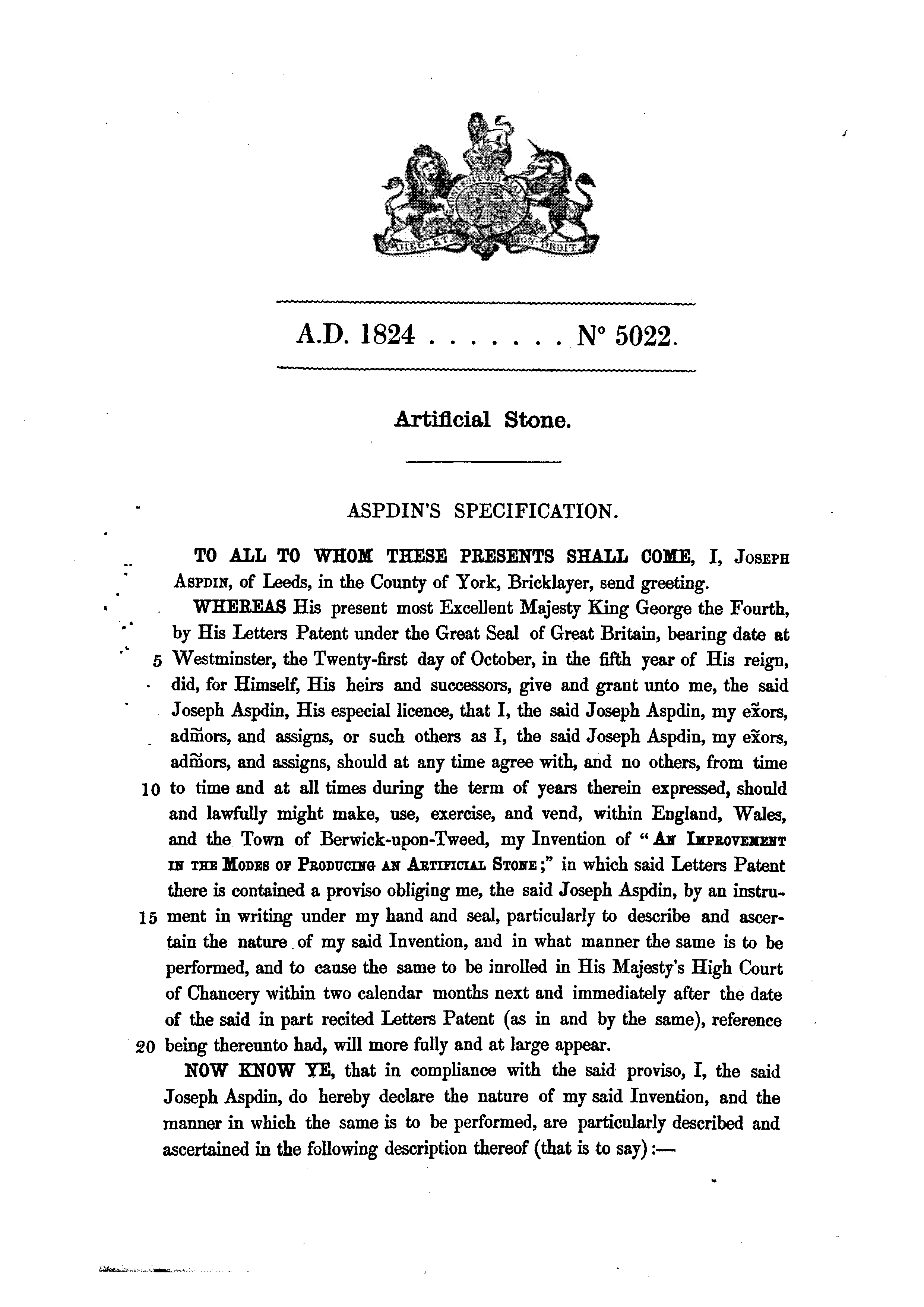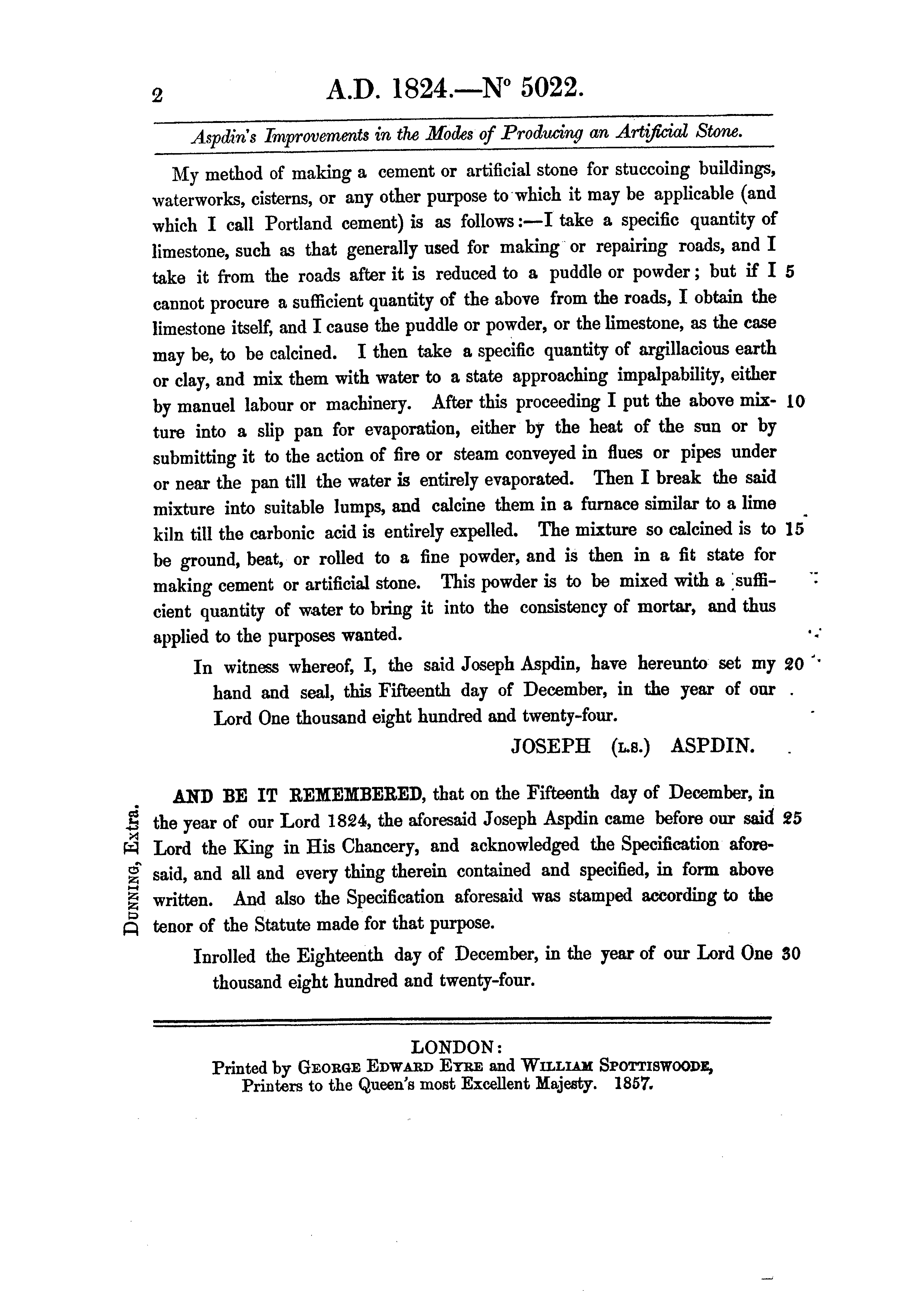Patent no. BP 5022. Patent Title – An Improvement in the Modes of Producing an Artificial Stone.
The patent reads as follows:
TO ALL TO WHOM THESE PRESENTS SHALL COME, I, Joseph Aspdin, of Leeds, in the County of York, Bricklayer, send greeting. WHEREAS His present most Excellent Majesty King George the Fourth, by His Letters Patent under the Great Seal of Great Britain, bearing date at Westminster, the Twenty-first day of October, in the fifth year of His reign, did, for Himself, His heirs and successors, give and grant unto me, the said Joseph Aspdin, His special licence, that I, the said Joseph Aspdin, my exors, admors, and assigns, should at any time agree with, and no others, from time to time at all time during the term of years therein expressed, should and lawfully might make, use, exercise, and vend, within England, Wales and the Town of Berwick-upon-Tweed, my invention of “AN IMPROVEMENT IN THE MODE OF PRODUCING AN ARTIFICIAL STONE;” in which said Letters Patent there is contained a proviso obliging me, said Joseph Aspdin, by an instrument in writing under my hand and seal, particularly to describe and ascertain the nature of my said invention, and in what manner the same is to be performed, and to cause the same to be inrolled in his Majesty’s High Court of Chancery within two calendar months next and immediately after the date of the said part recited Letters Patent (as in and by the same), reference being thereunto had, will more fully and at large appear.
NOW KNOW YE, that in compliance with the said proviso, I, the said Joseph Aspdin, do hereby declare the nature of my said Invention, and the manner in which the same is to be performed, are particularly described and ascertained in the following description thereof (that is to say):
My method of making a cement or artificial stone for stuccoing buildings, waterworks, cisterns, or any other purpose to which it may be applicable (and which I call Portland cement) is as follows:- I take a specific quantity of limestone, such as that generally used for making or repairing roads, and I take it from the roads after it is reduced to a puddle or powder; but if I cannot procure a sufficient quantity of the above from the roads, I obtain the limestone itself, and I cause the puddle or powder, or the limestone, as the case may be, to be calcined. I then take a specific quantity of argillaceous earth or clay, and mix them with water to a state approaching impalpability, either by manual labour or machinery. After this proceeding I put the above mixture into a slip pan for evaporation, either by heat of the sun or by submitting it to the action of fire or steam conveyed in flues or pipe under or near the pan till the water is entirely evaporated. Then I brake the said mixture into suitable lumps and calcine them in a furnace similar to a lime kiln till the carbonic acid is entirely expelled. The mixture so calcined is to be ground, beat, or rolled to a fine powder, and is then in a fit state for making cement or artificial stone. This powder is to be mixed with a sufficient quantity of water to bring it into the consistency of mortar, and thus applied to the purposes wanted.
In witness whereof, I, the said Joseph Aspdin, have hereunto set my hand seal, this Fifteenth day of December, in the year of our Lord One thousand eight hundred and twenty-four.
Signed: Joseph Aspdin
AND BE IT REMEMBERED, that on the Fifteenth day of December, in the year of our Lord 1824, and aforesaid Joseph Aspdin came before our said Lord the King in His Chancery, and acknowledged the Specification aforesaid, and all and every thing therein contained and specified, in form above written. And also the Specification aforesaid was stamped according to the tenor of the statute made for that purpose.
Inrolled the Eighteenth day of December, in the year of our Lord One thousand eight hundred and twenty-four.



